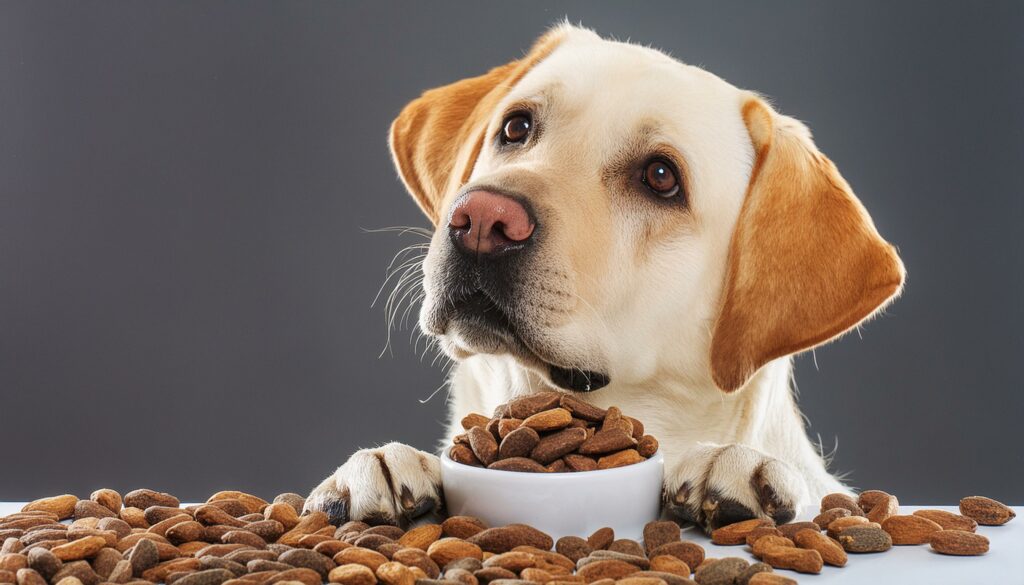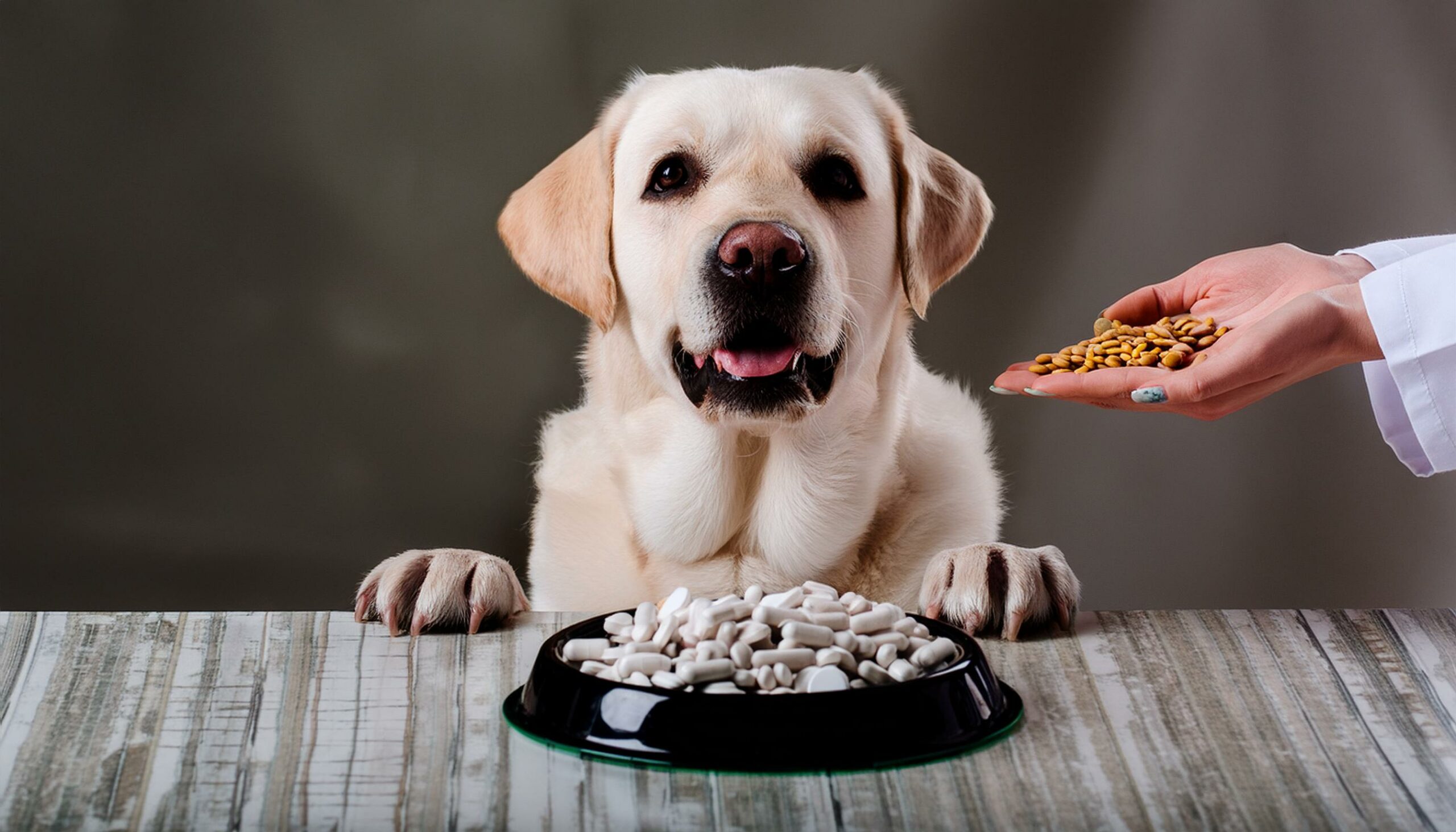Labradors are among the most beloved dog breeds worldwide, known for their friendly disposition, loyalty, and boundless energy. One aspect of caring for a Labrador involves understanding their dietary preferences and providing them with nourishing meals that cater to their taste buds and nutritional needs.
Understanding Labradors’ Dietary Needs
Labradors, like all dogs, require a balanced diet to support their health and well-being. Essential nutrients such as protein, fats, carbohydrates, vitamins, and minerals play crucial roles in maintaining their energy levels, muscle development, and overall vitality. Factors such as age, activity level, and health status can influence their food preferences, making it essential to tailor their diet accordingly.
Types of Food Labradors Love

- Meat-Based Diets: Labradors have a natural affinity for meat, reflecting their carnivorous ancestry. Lean meats such as chicken, turkey, beef, and lamb are not only rich in protein but also provide essential amino acids necessary for muscle growth and repair. Incorporating high-quality meats into their diet can satisfy their carnivorous cravings while promoting optimal health.
- High-Quality Kibble: While meat is a favorite, many Labradors also enjoy the convenience of dry kibble. Opting for premium kibble made from real meat as the primary ingredient ensures that they receive a well-rounded diet packed with essential nutrients. Look for brands that prioritize quality ingredients and avoid fillers and artificial additives that may compromise their health.
- Fresh Fruits and Vegetables: Contrary to popular belief, Labradors can also enjoy a variety of fruits and vegetables as part of their diet. Apples, carrots, blueberries, and green beans are among the many options that provide vitamins, minerals, and antioxidants to support their immune system and overall health. Including fresh produce in their meals adds flavor and nutritional diversity to their diet.
- Homemade Treats: Nothing beats the taste of homemade treats prepared with love. Labradors relish the flavors of homemade biscuits, muffins, and snacks made from wholesome ingredients such as peanut butter, pumpkin, and oats. Homemade treats not only provide a tasty reward but also allow owners to control the quality of ingredients, ensuring that their furry friends receive nutritious and delicious snacks.
Foods Labradors Should Avoid

While Labradors have hearty appetites, not all foods are safe for consumption. Some foods can be toxic or harmful to their health, posing risks such as digestive upset, organ damage, and even poisoning. Common foods to avoid include chocolate, grapes, raisins, onions, garlic, and foods containing xylitol. Additionally, certain ingredients found in commercial dog food, such as artificial preservatives, dyes, and fillers, may have adverse effects on their health.
Importance of Balanced Nutrition for Labradors
Maintaining a balanced diet is paramount for the health and longevity of Labradors. A diet lacking in essential nutrients can lead to nutritional deficiencies, obesity, and a myriad of health issues. By providing a well-rounded diet that meets their nutritional needs, owners can ensure that their Labradors thrive both physically and mentally.
Tips for Feeding Labradors
To optimize their health and happiness, here are some tips for feeding Labradors:
- Establish a Feeding Schedule: Consistency is key when it comes to feeding Labradors. Establish a regular feeding schedule with set mealtimes to regulate their appetite and promote healthy digestion.
- Practice Portion Control: Labradors have a tendency to overeat, which can lead to obesity and related health problems. Measure their food portions according to their age, weight, and activity level, and avoid free-feeding to prevent excessive calorie intake.
- Monitor Weight and Health: Regularly monitor your Labrador’s weight and overall health to ensure that they maintain an ideal body condition. Adjust their diet as needed based on changes in weight, activity level, and health status to support their well-being.
Conclusion
In conclusion, understanding Labradors’ favorite foods is essential for providing them with a diet that satisfies their nutritional needs and taste preferences. By incorporating a variety of high-quality ingredients into their meals and treats, owners can ensure that their beloved companions enjoy a healthy, balanced diet that promotes vitality and longevity.
FAQs (Frequently Asked Questions)
Can Labradors eat human food?
While some human foods are safe for Labradors, others can be harmful. It’s essential to research and consult with a veterinarian before offering human food to your Labrador.
How often should I feed my Labrador?
Most adult Labradors thrive on two meals a day, while puppies may require three to four meals. However, feeding frequency may vary based on individual needs and activity levels.
What are some signs of food allergies in Labradors?
Common signs of food allergies in Labradors include itching, scratching, ear infections, digestive issues, and skin inflammation. If you suspect your Labrador has a food allergy, consult with a veterinarian for proper diagnosis and treatment.
Is raw food suitable for Labradors?
Raw food diets can be controversial and may pose risks such as bacterial contamination and nutritional imbalances. It’s essential to research thoroughly and consult with a veterinarian before switching your Labrador to a raw food diet.
Can Labradors eat bones?
While some bones, such as raw meaty bones, can be safe for Labradors to chew on, cooked bones pose a risk of splintering and causing choking or internal injuries. It’s best to consult with a veterinarian before offering bones to your Labrador.
